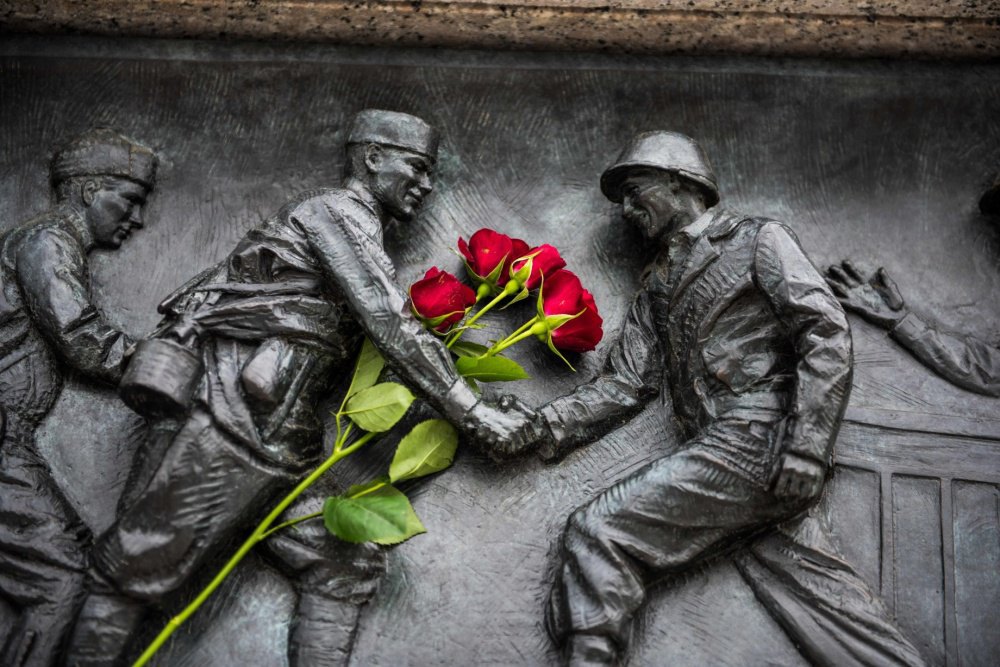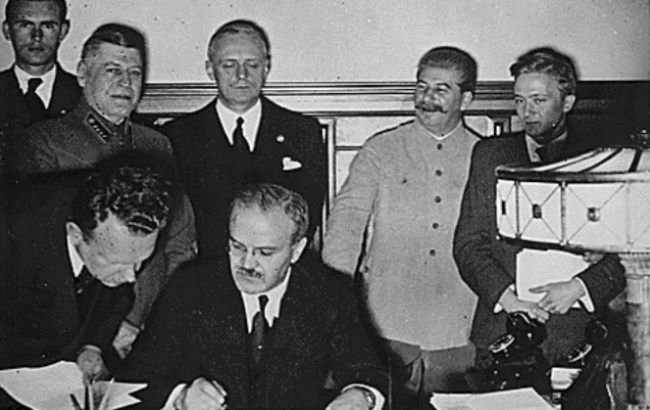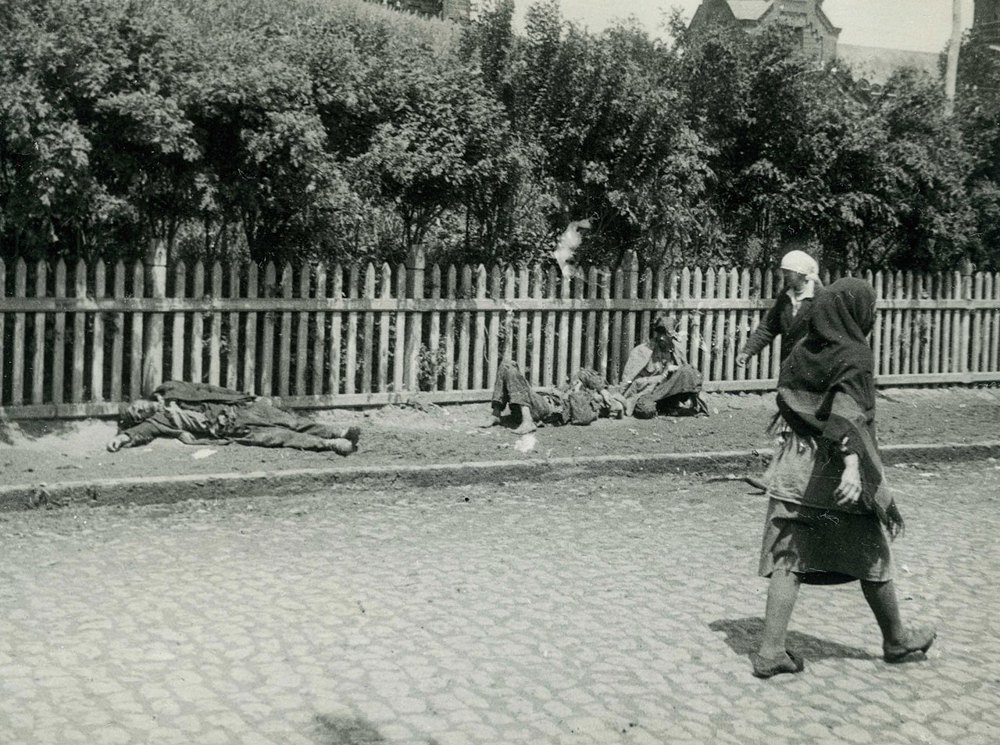
How the negotiation process took place
The process began with discussions and the agreement of the main themes – historical conclusions from the Second World War – that all seven countries were willing to endorse. The initiative to propose the article to The New York Times came from Ukraine. As Foreign Ministry spokesperson Heorhiy Tykhyy explained on his website, the process was challenging, as the topics were extremely sensitive for all involved. Nevertheless, it proved successful. The final text presents a historical narrative with relevant conclusions for the contemporary world.
Ukraine’s initiative reflects its unique perspective as one of the countries that suffered the greatest losses during the Second World War – and one that is again facing full-scale war, this time initiated by the Russian Federation. The points raised in the article also form part of a broader, multi-level peace process involving Ukraine, the European Union and the United States.
“The joint article by seven ministers in The New York Times is a truly global event. Today, we are conveying our firm position to the world together with our allies. We counter Putin’s historical distortions, propaganda and military parades with our united and resolute voice – with historical facts, the truth about the crimes of the Nazis and the Soviet regime, and a shared stance against Russian aggression today,” Tykhyy wrote on Facebook.
The main historical conclusions of the article
Ukraine’s Foreign Minister, Andriy Sybiha, along with Estonia’s Margus Tsahkna, Latvia’s Baiba Braže, Lithuania’s Kęstutis Budrys, Moldova’s Mihai Popșoi, Poland’s Radoslav Sikorski and the Czech Republic’s Jan Lipavský, outlined the following key points:
Appeasement of the aggressor leads to more aggression, not peace
When a state has unlawfully invaded another’s territory, attempts to resolve the situation through concessions are a grave mistake.
“The partition of Czechoslovakia in 1938 only whetted Nazi Germany’s appetite and led to a global war. In light of this lesson, Ukraine will never accept the legitimisation of Russia’s occupation and annexation of any part of its territory.”
The authors stress that respect for territorial integrity is a cornerstone of international law – and that these matters must not be resolved at the expense of the Ukrainian people, Ukraine’s independence or its territorial integrity.
Spheres of influence never bring peace and stability – they bring oppression
“The Second World War began with the invasion of Poland by Nazi Germany on 1 September 1939, one week after the signing of the Molotov–Ribbentrop Pact and its secret protocols between the Soviet Union and the Third Reich. These agreements divided Poland, the Baltic States and other parts of Europe into spheres of influence. Similarly, the victors of the war sought to establish and entrench their zones of control during the Yalta Conference in 1945. The end of hostilities in Europe on 8 May 1945 did not bring freedom to many European nations. They remained under Soviet occupation and control, and for decades suffered from international crimes, oppression and the denial of liberty. For many of our nations and peoples, this nightmare ended only five decades later – with the restoration of sovereignty and independence between 1989 and 1991,” The New York Timesarticle stated.

President Putin aspires to repeat the Yalta model, seeking once again to redraw Europe’s borders – violating international law and threatening global security through the use of force.
“Our principled position is that no third country has the right to veto the sovereign choice of any nation – including Ukraine – regarding its alliances or international partnerships. Ukraine has already made its choice – the European Union and NATO – and the Kremlin has no authority to challenge it.”
Impunity breeds future atrocities
The ministers argue that while the crimes of Nazi Germany were widely documented, condemned, investigated and punished – with serious lessons drawn – the same has not occurred with the crimes committed under the Soviet regime. Unnamed and unpunished evil creates space for denial and repetition. This dynamic continues to permeate all levels of the modern Russian state.
“There must be greater exposure of the crimes of the Soviet regime. These include the deportations and executions of political prisoners across our countries; the destruction of central Kyiv and the Dnipro hydroelectric dam by Soviet forces during their 1941 retreat; the mass deportations of our people to Siberia; brutal repression of anti-Soviet resistance movements; and the genocide of the Crimean Tatars, who were deported from their homeland in 1944. The list goes on. More than 100,000 people were forcibly removed from the Baltic States alone and transported in cattle wagons to remote Siberian settlements. The Holodomor–genocide, during which millions of Ukrainians died from artificially induced famine, must take a more prominent place in European historical memory. The crimes of the USSR must be condemned, including those committed during the Soviet occupation of Europe after the Second World War.”

Because the Russian Federation – as the modern successor to the Soviet Union – continues to deny and evade responsibility for these crimes, it fosters a culture of impunity and revanchism. This fuels a dangerous permissiveness around the crimes being committed today by the Putin regime.
Historical manipulations are unacceptable
“Russia has no right to monopolise the victory over Nazism – a triumph achieved by many nations and peoples. Even the Red Army was a multinational force, with at least six million Ukrainians fighting within its ranks. Instead of solemnly commemorating the victims of the Second World War, the Putin regime has created a grotesque cult of victory. It weaponises the shared Allied triumph over Nazism to justify its present-day aggression and atrocities against Ukrainians. The forthcoming 9 May military parade – Russia’s annual commemoration of the Soviet victory over Nazi Germany – serves to glorify this cult. Putin will attempt to use it to further mobilise Russians for war, bolster his regime, and give the impression that his international isolation is weakening. We must not allow him to succeed,” the foreign ministers assert.
The article concludes by emphasising that it is collective action and the establishment of a common security architecture that can prevent a Third World War – a threat that looms not only over Europe, but over the entire world.
The final statement is both a warning and a testimony: “This text is a joint warning from the countries that suffered under the Munich Pact, the Molotov–Ribbentrop Pact and the Yalta System.” Behind these conclusions lie lived histories – experiences that still speak, 80 years on.








